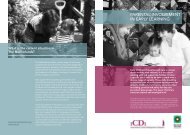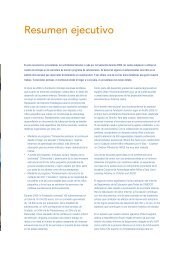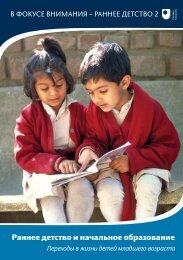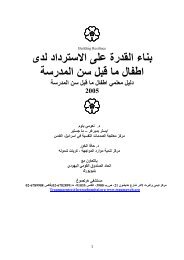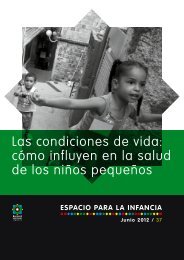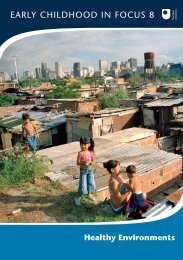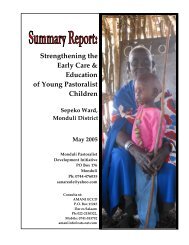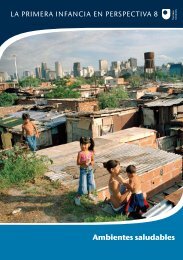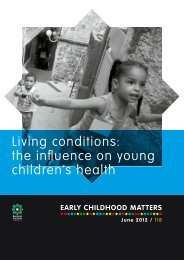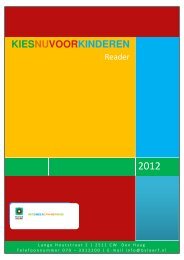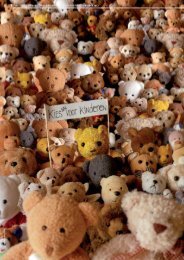education, a MOEC, UNICEF, UNESCO Study on ‘Education for Nomadic Communities inTanzania’, highlights that ‘… it remains a challenge to ensure that all nomadic children whereverthey are access, participate, remain , perform well and complete their basic education.’ (Mwegio,L. & Mlekwa, V.M, 2001:79). The authors highlight specific issues which lead to poorenrolment & high level of drop out of pastoralist children from schools, including,poverty; lack of water; distance; lack of food in the schools; shortage of teachers; poorlearning environment – curriculum that has little rele<strong>van</strong>ce; mobility of communities;early marriages; cultural practises, i.e rituals including circumcision; low level ofeducational awareness. (Mwegio, L. & Mlekwa, V.M, 2001:79).However, despite the challenges, ironically, the‘Pressures of life, such as drought, conflict or socio-economic factors…result in pastoralistsincreased demand for formal education, to provide alternatives for th eir children.’Oxfam GB paper, Sept 2003, Monduli District Council, 2003Some specific government identified challenges of formal education in relation topastoralist communities and & possible solutions are outlined in Table 6: Govt identifiedchallenges & solutions for improving formal education for pastoralists, below.Table 6: Government t identified challenges & solutions for improving formal education for pastoralistsChallengesPrimary School programmes & approaches are not rele<strong>van</strong>t to pastoralist children.‘The curriculum does not respond to needs and aspirations of nomadic children…,• it does not link with informal and indigenous education, which is more functional, and• does not offer to the children the necessary life and survival skills within their immediate environment’Mwegio, L. & Mlekwa, V.M, 2001:102Suggested SolutionsMonduli District Council (Monduli Council, 2003:14 ) have suggested …• involvement of communities ‘….. in preparation of curricular … (based) .. on the socio-cultural background ofthe community, ‘• ‘..making teaching and learning methodologies more rele<strong>van</strong>t to Maasai community,’• adjusting timing of school terms fit with migration period, and• establishin g parent education, to lead to greater understanding between families, communities andteachers,’MOEC, UNICEF, UNESCO Study on Education for Nomadic Communities in Tanzania suggests• Develop a Core & Functional curriculum - researchers in a Tanzanian study in nomadic education tosuggest the development of a, ‘..that the curriculum be divided into a core curriculum (mathematics, languagesand general knowledge)… and a functional curriculum… that should provide skills education deeply rooted into thesocio-economic activities and lifestyles of the children… and both categories of the curriculum ( to be) taken seriously…should be equally weighted and examined.’ (pg 103)• Strengthen the concept of community schools - ‘… organise and coordinate school activities in such a way thatschools are operated as community schools which prepare children to meet the challenges and improve their lives, (pg.102)• Collaborative multi-sectoral approaches to improving educational outcomes for pastoralsit children• ‘… a multi-sectoral programme needs to be established, consisting of projects in education, agriculture,livestock, water development, natural resources, health, hunting, bee-keeping and community development’,(pg. 101)16
Babati Agricultural and Environment Education Project (BAEEP) - Lessons Learned:One very local example of linking informal and formal education exists in Babati a fewhours from Monduli town. The Babati Agricultural and Environment Education Project(BAEEP) supported by District in collaboration with FARM AFRICA, aims to linkcommunity and school knowledge, through participation of students, teachers, andparents in the development & management of school gardens and nurseries.Planned outputs of BAEEP include the development of practical and rele<strong>van</strong>t learningcontexts through increased participation of parents in the education system.Coming up to the end of its second year, identified lessons learnt to date, include: -‣ Consultations with parents and communities have been slow to happen, relying onexisting structures such as school committees and parents/general meetings, andrallying by village officials,‣ Community awareness-raising initiatives are yet to truly mobilise;‣ The Life-skills subject Agriculture/Livestock husbandry and Environment, is onlyvery small section within the existing curriculum, and is not examinable, thereforeteachers do not invest time and effort in it despite it’s importance to the livelihood ofrural communities and national economy;‣ School committees and parents have little understanding of LGRP, and what itcan/does mean to them, especially in increased participation and management inschool matters. This situation is not helped with Head Teachers resistance to ‘handover’ and be appropriately transparent in decision-making including resourceallocation.Alternative Basic Education for Karamajong (ABEK), Uganda, - Lessons Learned:ABEK - Alternative Basic Education for Karamajong, Uganda, has grown out of what isdescribed as ‘positive resistance’, to a formal education (of the past) that had no practicalbenefit or value in helping their children to adapt and make better use of theirenvironment. The programme is a non-formal alternative to basic education, and aims toprovide rele<strong>van</strong>t education for pastoralist Karamajong children, 6 – 18 year olds, whowould grow up and continue the Karamajong lifestyle, whilst creating a path to formalschool for those who want to go on, (Nagel 2002). Some key lessons to draw from theABEK experiences to date, include: -‣ Links school schedules & hours to community lifestyles & children’s family workroles& thereby ensure their ongoing informal education - ‘ ...ABEK adapts schoolingto the “framework” of Karamajong’s agro-pastoralist lifestyle, recognising the central roleof the child in the household economy , (Indigenous Information Network, 2003:25).‣ Develops the capacity of community nominated teachers facilitating theprogrammes in the vicinity of the community (or Manyattas);17




